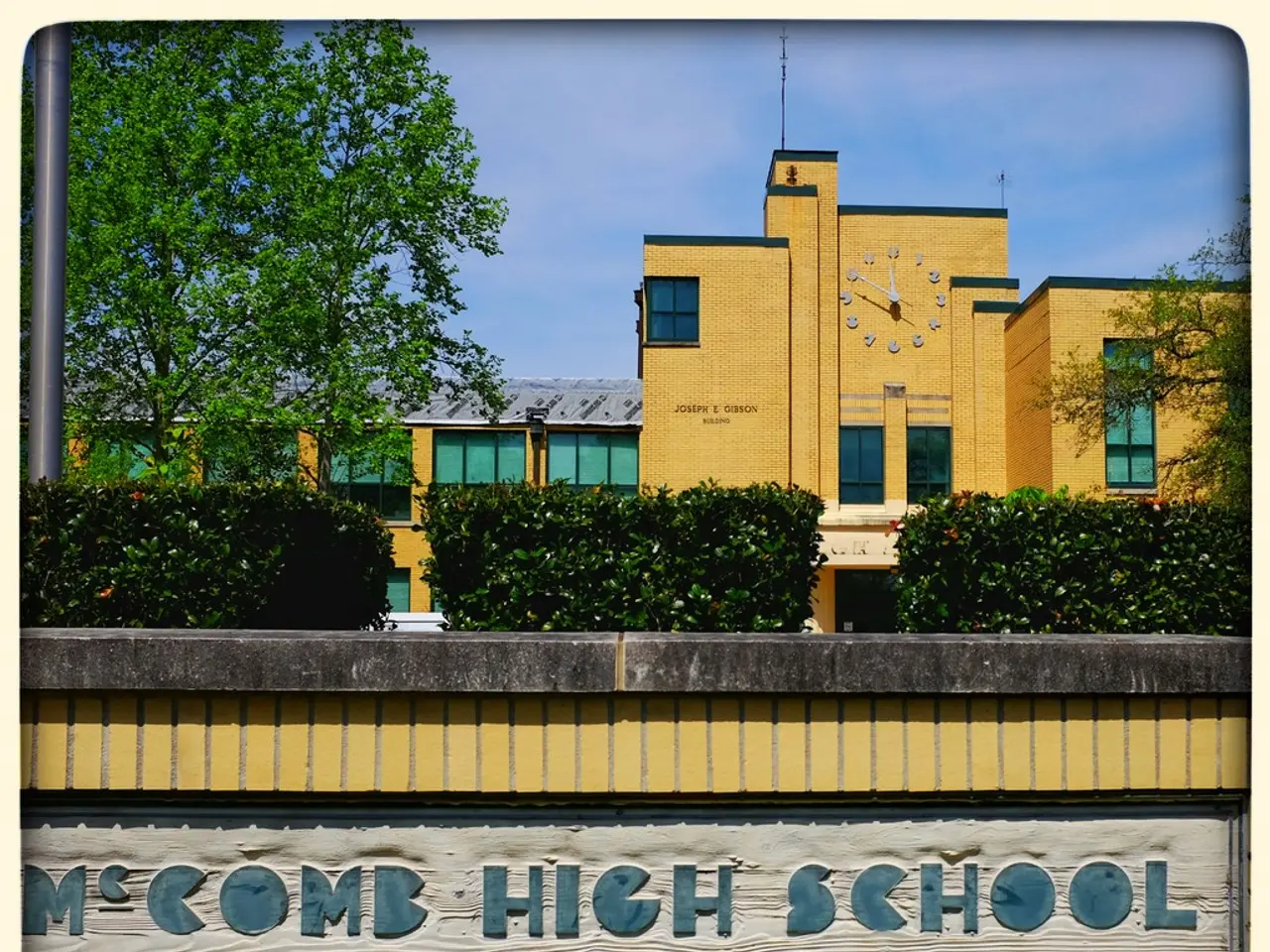Plastic Flood - Educational Guideline
In a bid to combat the growing issue of plastic pollution, various community-driven projects have emerged around the globe. These initiatives, such as The Plastic Tide, Litter Intelligence, and Litterati, focus on plastic and marine litter monitoring, cleanup, and awareness-raising efforts.
One such project is The Ocean Cleanup Pacific Data Expedition 2025. This venture enlists sailors and seafarers to monitor and map plastic pollution in the Great Pacific Garbage Patch using AI-powered technology and GPS trackers. Participants can also complete marine debris surveys and submit marine life sightings, contributing data remotely or in situ during expeditions 1.
Similarly, Surfers Against Sewage (UK) organises citizen-led actions like the Million Mile Clean, Plastic-Free Communities, and Plastic-Free Schools campaigns. These initiatives mobilise thousands of volunteers annually to clean up plastic pollution along coastlines and rivers in the UK, while raising awareness on reducing plastic use at the source 2.
IKHAPP (International Knowledge Hub Against Plastic Pollution) functions as a global network of scientists and engaged citizens, combining interdisciplinary scientific knowledge with citizen science to support plastics pollution policies and actions. It offers resources, research briefs, and facilitates collaborations relevant to citizen monitoring and cleanup efforts 3.
Microplastics citizen science projects are also gaining traction. These initiatives empower communities to analyse microplastic pollution locally, contributing to broader monitoring and education efforts about plastic impacts on environments 4.
The PROTEGO project (Work Package 4) emphasises public awareness and community involvement in marine litter causes and solutions, highlighting the critical role of citizen engagement 5.
In New Zealand, teacher Dianne Christenson utilised the online citizen science project The Plastic Tide for a primary school unit on sustainability. The unit focused on developing students' science capabilities 'Gather and interpret data' and 'Engage with science' 6. Students conducted regular lunchbox audits, LittaTrap audits, sorted beach samples, and used The Plastic Tide OCS project 7.
The unit allowed students to connect their regular stream monitoring work with questions about the amount of litter found locally and globally. The Science Learning Hub offers a wide range of resources for primary teachers related to recycling and biodegradability in the Material World strand of the New Zealand Curriculum 8.
Moreover, the Royal Society Te Apārangi website provides resources related to plastics in the environment, including the report Plastics in the Environment 9. Citizen science projects like Litter Intelligence and Litterati can be tried with classes 10.
The Plastic Tide citizen science project has concluded, but relevant learnings can still be taken from it. For instance, the Ocean Plastic Simulator is an interactive computer tool showing where virtual plastic is likely to end up when dropped in the ocean 11.
Furthermore, students in Petone, Lower Hutt, used LittaTraps to prevent rubbish from entering their local marine environment [12]. A report titled Rethinking Plastics in Aotearoa New Zealand was released in December 2019, with New Zealand science organisations creating reports and resources to help rethink plastic [13].
Oceans of rubbish offers insight into the breadth of the pollution problem in our seas 14. As these initiatives demonstrate, community-led projects play a crucial role in addressing plastic pollution, combining technology, public participation, and scientific collaboration to make a difference.
[12]: Not provided in bullet points [13]: Not provided in bullet points
- These initiatives, such as The Ocean Cleanup Pacific Data Expedition 2025, enlist participants to monitor and map plastic pollution, providing opportunities for both remote and in-situ data collection.
- Volunteer-led actions like Surfers Against Sewage's Million Mile Clean and Plastic-Free Schools campaigns mobilize thousands of people to clean up plastic litter along UK coastlines and rivers, promoting the importance of reducing plastic use at its source.
- IKHAPP, a global network of scientists and engaged citizens, combines interdisciplinary scientific knowledge with citizen science to support plastics pollution policies and actions, offering resources, research briefs, and fostering collaborations relevant to monitoring and cleanup efforts.
- Microplastics citizen science projects encourage communities to analyze microplastic pollution locally, contributing to broader monitoring and education efforts about plastic's impact on the environment.
- Projects like PROTEGO emphasize public awareness and community involvement in marine litter causes and solutions, highlighting the critical role of citizen engagement in combating plastic pollution.
- Dianne Christenson, a New Zealand teacher, utilized The Plastic Tide citizen science project for a primary school unit on sustainability, focusing on developing students' science capabilities and connecting local litter data with global trends.
- The Science Learning Hub offers resources for primary teachers related to recycling and biodegradability, supporting the teaching of strands like material world in the New Zealand Curriculum.
- The Royal Society Te Apārangi website provides resources related to plastics in the environment, including reports and tools that can be used in educational settings, such as Litter Intelligence and Litterati.
- The Plastic Tide citizen science project's conclusion leaves valuable learnings, including the Ocean Plastic Simulator, an interactive computer tool showing where virtual plastic is likely to end up when dropped in the ocean.
- In Lower Hutt, Petone students used LittaTraps to prevent rubbish from entering their local marine environment, demonstrating the power of community-led efforts in addressing plastic pollution.
- The release of the Rethinking Plastics in Aotearoa New Zealand report highlights the ongoing work of New Zealand science organizations in creating resources to help rethink plastic and combat its pollution.
- Oceans of rubbish sheds light on the extensive nature of the pollution problem in our seas, further emphasizing the need for community-led projects in addressing this pressing issue.




